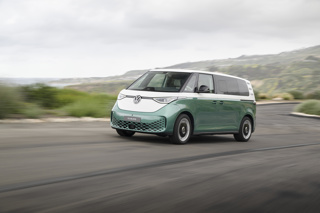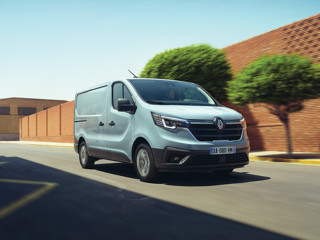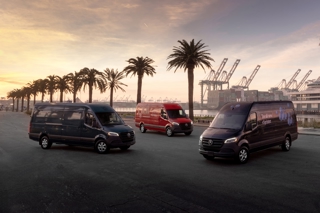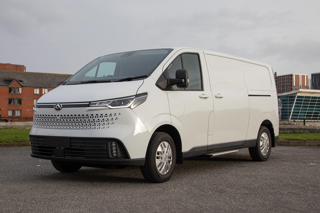Fleets will be able to run alternatively fuelled vans up to 4.25 tonnes GVW without needing an operator licence following a Department for Transport consultation.
Currently, organisations can run vans up to 3.5 tonnes GVW without needing an O-licence, but campaigners felt this affected the appeal of alternatively fuelled vehicles as they have heavier powertrains than their diesel counterparts.
More than 90% of respondents backed the change to 4.25 tonnes GVW, and the Government today announced this exemption will become law.
A further change is that electrical goods vehicles up to 3.5 tonnes, except those first registered before March 1, 2015, will no longer be exempt from MOT tests.
Jesse Norman, parliamentary under secretary of state for roads, local transport and devolution, said: “We consulted on removing the blanket exemption for all electrically-powered goods vehicles, but retaining a limited exemption for alternatively-fuelled vehicles up to 4.25 tonnes.
“We have decided to proceed with those plans in order to help incentivise the use of cleaner fuel vans, while avoiding the regulatory ‘payload penalty’ associated with heavier powertrains (including battery weights).
“Alongside this change, we are also taking the common-sense step of bringing electric vans under normal roadworthiness testing rules.
“We intend to bring forward amending legislation to put these decisions into effect.”
The consultation into electrically-propelled vehicles attracted 15 respondents, including operators of such vehicles, trade bodies and public bodies.
Seven respondents either agreed in full with the proposal or had no objections to it.
Seven other respondents broadly agreed with the proposal to remove the blanket exemption but to retain a limited exemption for alternatively-fuelled vehicles up to 4.25 tonnes.
However, they disagreed that this exemption should be limited to own-account haulage only, preferring that it also be applied to hire or reward operations.
One respondent disagreed entirely on the grounds of safety and security concerns.
The reasons submitted for preferring the limited exemption to apply to hire or reward haulage included:
n The vast majority of new vans are used for hire or reward haulage
n The need to obtain an operator’s licence and the costs associated with this, especially around financial standing and operating centres, would discourage many hire or reward firms from taking up clean vans.
n Larger companies may already hold operator’s licences but the bases out of which they may wish to operate clean vans are not necessarily already operating bases.
n A differential approach between hire or reward and own-account haulage would disadvantage certain commercial models and competition.
The report said: “Having listened to stakeholder feedback, we have decided to 1) remove the current exemption for all electrically-propelled vehicles, except for those first registered before March 1, 2015; and 2) to introduce a new exemption for alternatively-fuelled vehicles up to 4.25 tonnes, that are not used internationally.”
This new exemption will apply to both hire or reward and own-account haulage operations.
The report added this exemption “is without prejudice to the Government decision on the proposed driving licence derogation for alternatively-fuelled vans up to 4.25 tonnes, which will be issued separately in due course”.
The policy changes will be implemented through amendments to the Goods Vehicles (Licensing of Operators) Regulations 1995, the Motor Vehicles (Test) Regulations 1981, and through the administrative issuance by the Vehicle Certification Agency of vehicle Special Orders.
The Government’s decisions have been welcomed by the National Franchised Dealers Association (NFDA) Commercial Vehicle sector.
Sue Robinson, director of the NFDA Truck and Van division, said: “We are pleased to see that the Government has listened to the NFDA’s criticisms that this exemption must apply to hire and reward haulier, which were excluded in the initial proposal.
“Echoing the NFDA’s consultation response, the Government has recognised that for alternatively fuelled vans to be commercially viable, vehicles with a GVW of up to 4.25t must be treated in exactly the same manner as a 3.5t GVW vehicle.
“We welcome this decision and acknowledge that is a step in the right direction in encouraging alternatively fuelled vans to become part of van fleets.”



















Login to comment
Comments
No comments have been made yet.